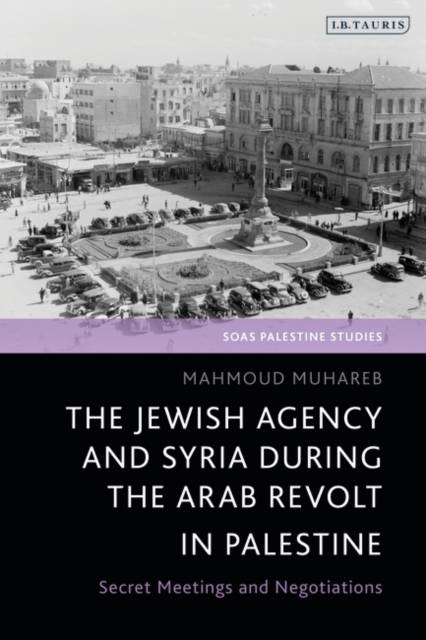
- Afhalen na 1 uur in een winkel met voorraad
- Gratis thuislevering in België vanaf € 30
- Ruim aanbod met 7 miljoen producten
- Afhalen na 1 uur in een winkel met voorraad
- Gratis thuislevering in België vanaf € 30
- Ruim aanbod met 7 miljoen producten
The Jewish Agency and Syria During the Arab Revolt in Palestine
Secret Meetings and Negotiations
Mahmoud MuharebOmschrijving
Founded in 1929, the Jewish Agency played a central role in the founding of the State of Israel. Throughout the 1920s, 30s and 40s, many secret meetings took place between the JA and Arab leaders and elites. The dominant narrative claims that Syrian leaders and elites were not involved in any such meetings. However, this book reveals for the first time that a multitude of secret meetings and negotiations took place including with the Syrian National Block - the official Syrian leadership at the time - and the Shahbandari opposition and leaders of Jabal al-Druze.
Based mainly on primary sources from Israeli archives, including documentation of discussions, reports and decisions taken by the JA leadership, the book tells a new story of a critical period of history, the Arab Revolt of 1936-1939 in Palestine. Mahmoud Muhareb argues that the main historic objective of the JA was to reach agreements with Arab leaders and Arab states, behind the back of the Palestinians and at their expense, and to normalize its relations with the Arab states while it continued to deny the national rights of the Palestinians. The book challenges Israeli and Syrian official narratives and substantiates the Palestinian narrative, as well as some Israeli new historians who asserted Israel refusal to recognize the national rights of the Palestinians and affirmed its attempts to reach a comprehensive settlement with the Arab states at the expense of the Palestinians. The book includes Arabic and Hebrew sources translated into English for readers.
Specificaties
Betrokkenen
- Auteur(s):
- Uitgeverij:
Inhoud
- Aantal bladzijden:
- 224
- Taal:
- Engels
- Reeks:
Eigenschappen
- Productcode (EAN):
- 9780755647637
- Verschijningsdatum:
- 26/01/2023
- Uitvoering:
- Hardcover
- Formaat:
- Genaaid
- Afmetingen:
- 156 mm x 234 mm
- Gewicht:
- 489 g

Alleen bij Standaard Boekhandel
Beoordelingen
We publiceren alleen reviews die voldoen aan de voorwaarden voor reviews. Bekijk onze voorwaarden voor reviews.








